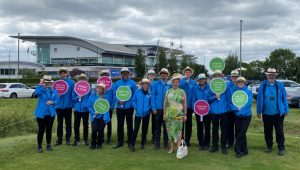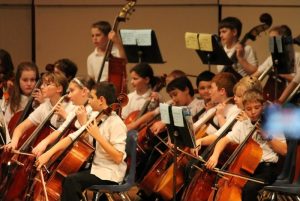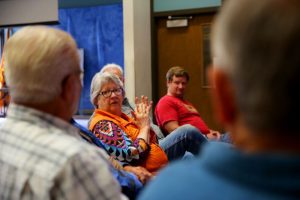Ewell based Nescot (North East Surrey College of Technology) were proud to be part of this year’s Epsom Derby Festival. Our Travel and Tourism students were once again ‘Racemakers’ and our Animal Management students presented personalised handmade plaques to the grooms of the Betfred Derby runners.
NESCOT on Reigate Road, Ewell is the location for a local HUSTINGS, staged by Epsom and Ewell Times, for the Epsom and Ewell Parliamentary Candidates in the Adrian Mann Theatre at 7pm on Wednesday 26th June. All welcome.
Our Travel and Tourism Level 2 and 3 students were part of the ‘Racemaker’ team on 31 May and 1 June. They used skills developed within their course to assist visitors with directions and queries, helping to ensure an excellent experience was had by all. The students benefitted from both, the preparation and employment during the event. The experience has allowed them to develop their academic and transferrable skills, from CV development to interviews and onsite advice and guidance with Epsom Downs Racecourse. They received training on the various enquiries they might receive including how to effectively deal with a range of customer service scenarios.
A team of four of our Level 2 and 3 Animal Management students also presented unique mementos made from wood off cuts that bore the names of the horses running in the Derby. These personalised and handmade plaques were presented to each groom. The students were chosen for their consistent hard work and involvement in sustainability projects as part of their course.
Julie Kapsalis, Principal and CEO of Nescot, said, “We are proud of our involvement at the Betfred Derby Festival. Thanks to our staff for creating these collaborative opportunities and to our students for being excellent ambassadors for the College. It has been an incredible experience for them to be part of an internationally renowned premier racing event.
“We are hugely appreciative of Epsom Down Racecourse for inviting our students to be part of this prestigious event. Working with businesses and the community is important to us as a college and we look forward to our continued partnership that will enrich our learners with practical experiences to prepare them for their careers.”
Jennifer Fasad and Jemma Brodie, Travel and Tourism lecturers at Nescot also expressed their gratitude. They said, “A huge thank you to the team at Epsom Downs Racecourse who ensured a comprehensive training programme was given to all learners involved. The opportunity to gain first hand customer service skills at an event of this scale offers them an all-important experience as they consider career paths in the travel, hospitality and events industry.”
Zoe Brown, Head of Curriculum, Animal Studies, commented, “Our students were thrilled with the invitation to go behind the scenes in the stables area and meet the people who care for the horses. It’s been an amazing experience for them. Thanks to Epsom Downs Racecourse for organising this opportunity. We are delighted that the personalised plaques were well received and we’ve been asked to provide them next year too.”
Tom Sammes, General Manager at Epsom Downs Racecourse, said “We were pleased to offer students from Nescot the opportunity to be part of the ‘Racemaker’ team at the Betfred Derby Festival. Their enthusiasm and commitment to learn and execute their roles is commendable, and the whole team were professional and dedicated across the two days.
“We were also delighted to help the students present the beautifully designed plaques to the grooms of the Betfred Derby runners and want to thank them for their hard work in the build up to the event.
“Epsom Downs Racecourse is looking forward to offering a range of different projects to support study programmes for young people throughout the rest of the year. Nescot is a huge part of the local community, and we want to help them continue to make a positive impact on the young people that come through their doors.”
Travel and Tourism student Frankie said, “We had such a great time working as part of the Racemaker Team. The guidance and the allocation of roles and locations was clear and organised. This opportunity has allowed me to develop my leadership skills. I was proud to be placed on the radio as a team leader during the second day.”
Another student Josh added, “It was an amazing experience! Helping customers has developed my confidence. I had some fantastic personal moments and even had the opportunity to see the beautiful race horses in the winner enclosure.”
This is the second year that our Travel and Tourism students have worked alongside The Jockey Club as part of the Beacon Project that was set up in in Autumn 2022. This collaboration offers our students work experience opportunities with various projects at Epsom Downs Racecourse to aid with their studies and understanding of the racing industry and career opportunities it presents.
Nescot’s Travel and Tourism students as part of the ‘Racemaker’ team at Epsom Downs Racecourse for the Betfred Derby Festival along with Julie Kapsalis, Principal and CEO. Photo credit: Nescot












